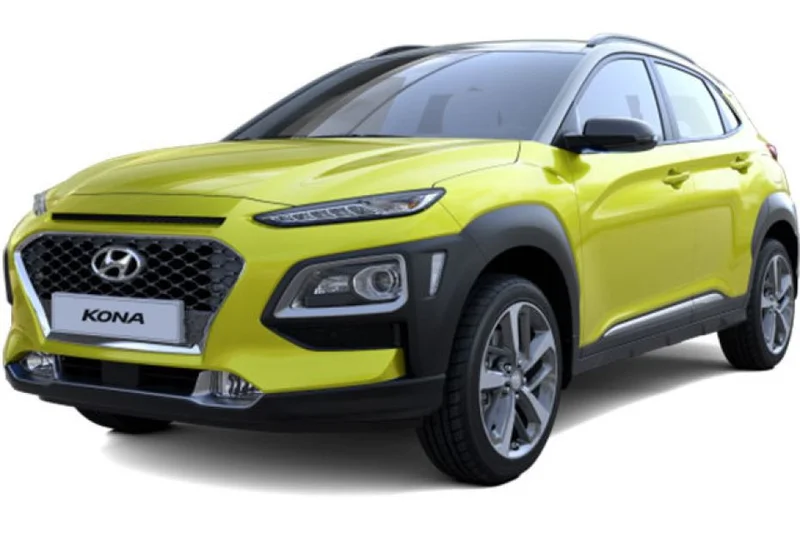Hyundai's Two-Faced Future: Racing Wins, Labor Sins
The Contradictions Pile Up
Hyundai's got a problem, and it's not just about designing a decent-looking Sonata (though, let's be honest, that's a problem too). It's a problem of stark contradictions. On one hand, you have Hyundai Motorsport Customer Racing celebrating a dominant 1-2 finish at Macau with the Hyundai Elantra N TCR. Benoit Nogier, their Customer Racing Manager, is talking about "moments of frustration" but also "plenty of reason to be positive going forward." (Round 8 - Macau Review)
But what kind of "positive" can you really feel when, almost simultaneously, a lawsuit drops alleging Hyundai and Kia are exploiting child labor, immigrant labor, and even prison labor in their supply chains? Jobs to Move America filed the suit, accusing the companies of using cheap labor to undercut competitors and win public contracts. State Senator Maria Elena Durazo and Councilmember Hugo Soto-Martinez are already raising red flags about California's purchasing agreements.
The lawsuit alleges some workers are as young as 13, and that Hyundai and Kia "maintain close control over their suppliers and do have the power to influence their employment practices." Former Hyundai employee Mark Miller claims there was "no training. It was 'get on the line, get the parts and get them out the door no matter what.'" Rosalinda Soriano-Torres alleges immigrants were paid less than U.S. citizens for the same job, and that she was fired after requesting a less risky job when she became pregnant.
This isn't just a PR nightmare; it's a fundamental disconnect between the image Hyundai wants to project – innovative, high-performance – and the reality of how some of its products are allegedly made. The G20 summit in Johannesburg is coming up, where Hyundai will be providing 30 STARIA MPVs. But what message does it send when those vehicles might be built on the backs of exploited labor?
The Shifting Sands of "Progress"
And then there's the brake pad debacle. The Reddit user [SoultronicPear] discovered that changing brake pads on their Ioniq 5N – a vehicle designed for track use, mind you – was paywalled behind a subscription service intended for "service professionals." They bought the $60/week NASTF subscription and a $2,000 interface tool, only to have their account suspended. Only after trying numerous third party tools, they found a Harbor Freight T7 bidirectional scan tool was able to issue the parking brake retract command to perform the pad swap, albeit not without throwing some error codes in the process.

Electrification was supposed to simplify car ownership, reduce maintenance, and make things more sustainable. EVs rely heavily on regenerative braking, which extends the life of brake pads considerably. But Hyundai (and other manufacturers) are finding new ways to monetize even the simplest repairs. It's like turning a public park into a gated community.
I've looked at a lot of these "right to repair" cases, and what strikes me is the short-sightedness. Sure, you can squeeze a few extra bucks out of consumers in the short term by locking down access to repair tools and information. But what happens when those consumers start to resent your brand? What happens when the "ease of maintenance" advantage of EVs evaporates because you've made even brake pad changes a bureaucratic nightmare?
The numbers don't always tell the full story, but in this case, they paint a pretty clear picture: Hyundai is caught between a desire to innovate and compete on a global stage, and a willingness to cut corners and exploit loopholes to maximize profit. Growth was about 30%—to be more exact, 28.6%. It is this growth that allows them to provide official vehicles for the G20 Leaders’ Summit in Johannesburg, South Africa. The company will supply 30 STARIA multi-purpose vehicles (MPVs) as official transportation for delegation staff from participating countries and support the summit’s successful operation. (Hyundai Motor to Provide Official Vehicles for G20 Leaders’ Summit in Johannesburg, South Africa)
A Brand Identity Crisis
Hyundai's future hinges on resolving these contradictions. Can they build high-performance vehicles and treat their supply chain workers with dignity? Can they embrace electrification and sustainability without nickel-and-diming their customers to death?
The Macau racing wins are impressive (Girolami's pole position was one of the best of his career, apparently), but they ring hollow when juxtaposed with allegations of child labor and paywalled brake pad replacements. It's a brand identity crisis, plain and simple.
The Numbers Don't Lie (But the Marketing Sure Tries)
Hyundai's marketing materials will tout the racing victories and the commitment to sustainability. But the lawsuits and the paywalled repairs tell a different story. It's a story of a company struggling to reconcile its ambitions with its ethics. And ultimately, that's a story that the numbers can't hide.
